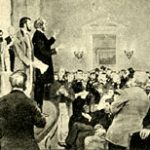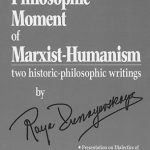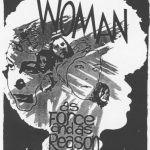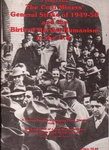The dialectic and the meaning of the Russian Revolution.
G.W.F. Hegel

On the 100th anniversary of the Russian Revolution. Historic initiative of the masses and Lenin’s philosophic break
November 14, 2017Raya Dunayevskaya’s outline for a 1948 speech in Pittsburgh for the Russian Revolution’s anniversary; and “Lenin and the Dialectic: A Mind in Action,” taking up Lenin’s philosophical preparation for revolution. .

New book–Russia: From Proletarian Revolution to State-Capitalist Counter-Revolution: Selected writings by Raya Dunayevskaya
New collection of writings by Raya Dunayevskaya on the 100th Anniversary of the Russian Revolution titled: Russia: From Proletarian Revolution to State-Capitalist Counter-Revolution. .

New book: Dunayevskaya on Russian Revolution
August 29, 2017On the 100th anniversary of the Russian Revolution, a new book collects writings by Raya Dunayevskaya on the Revolution, counter-revolution, and their consequences, aiming to help create new revolutionary beginnings today. .

From the writings of Raya Dunayevskaya: A concrete universal: Marx’s ‘Capital’–Part 2
August 28, 2017Continuing to mark the 150th anniversary of Karl Marx’s Capital, we present excerpts from “Marx’s Transcendence of and Return to Hegel’s Dialectic,” taking up the profound humanist transformation from Marx’s Grundrisse into Capital.

From the writings of Raya Dunayevskaya: A concrete universal: Marx’s “Capital”–Part 1
July 2, 2017Continuing to mark the 150th anniversary of Karl Marx’s Capital, Vol. I, we present excerpts from “Marx’s Transcendence of and Return to Hegel’s Dialectic,” a draft chapter for Dunayevskaya’s book Philosophy and Revolution, taking up the profound humanist transformation from Marx’s Grundrisse into Capital.

Learning from miners
June 30, 2017Former miner Andy Philips speaks about the interest in Marxist-Humanism at his assisted living facility.

VI. The Russian Revolution, 100 years ago and its meaning today
May 17, 2017Whatever lip service is paid to the Russian Revolution’s 100th anniversary, its significance as a historic event and as a link to the thought and practice of Marx has been obscured because of the abandonment of revolutionary perspectives. It is high time to push to the forefront the role of the philosophy of revolution in permanence in facing the reality of dialectics of liberation, 1917 and 2017.

V. Lies, facts and ground
The administration’s war against truth and reason, such as climate change denial, calls for more than fact-checking. What is needed is to establish a totally opposite ground, that of liberation.

I. Trumpism as an excrescence of world capitalism’s crises
Trumpism’s self-perpetuating disorder is based on negation of social movements, trying to stifle the positive in their negation of this exploitative society. His deceit and power grabs express capitalism’s disintegration, exuding racism, sexism, and fascism.

Essay: Marx’s Marxism vs. Trump-Putin’s barbarism
March 21, 2017Trump’s barbarism in power is a crisis for bourgeois democracy and revolutionary thought. Opposition from below is far deeper than bourgeois opposition to Trump. To have efficacy today, Marx’s body of ideas must be grasped and projected as a whole. The movement from theory needs to meet the challenge of history, of freedom struggles and revolution.

Reader’s Views: March-April 2017, Part 2
March 16, 2017Readers’ Views on Hegel’s dialectic and today’s retrogression; Why read N&L?; La Raza unida; Education and freedom; Racism in Burma and U.S.; Voices from behind the bars
News and Letters Committees Call for Plenum 2017
February 26, 2017Official Call for national gathering of News and Letters Committees to work out Marxist-Humanist perspectives for 2017-2018

As Others See Us: The new French edition of Marxism and Freedom ‘To retake the historical initiative’
January 31, 2017Frédéric Monferrand introduces the new French edition of Marxism and Freedom. This excerpt concentrates on how the work reconstructs the Hegelian philosophical consistency of Marx’s Marxism so that it comes to life–from the 1844 Manuscripts to “Capital,” through the idea that history is the history of the efforts of humanity to make itself free.
From the Writings of Raya Dunayevskaya: Why Phenomenology? Why now?
January 30, 2017Because of the urgency of the question of how to make new beginnings in such a reactionary world situation, we excerpt two of Dunayevskaya’s last philosophical writings, which confront “where to begin” as part of her work on dialectics of philosophy and organization.

Lead-Editorial: No to Trump’s counter-revolution! No to fascism! Fight for a new human society!
November 26, 2016Trump’s electoral victory by appealing to racism and sexism menaces all freedom movements. It is the index of this system’s crisis and bankruptcy of thought, which needs to be met with a truly revolutionary vision.

Readers’ Views: September-October 2016, Part 2
September 16, 2016Readers’ Views includes: Politics; revolution and the power of philosophy; remembering Olga Domanski; the sports section; national prison action; and voices from behind the bars.

Essay: Epigones discard Marxist-Humanist philosophy
September 12, 2016The retreat of former Marxist-Humanists into post-Marx Marxism is analyzed by Franklin Dmitryev through the books “Marx at the Margins” by Kevin Anderson and “Marx’s Concept of the Alternative to Capitalism” by Peter Hudis, which appropriate some of Raya Dunayevskaya’s conclusions while quietly dismantling their philosophical framework.

Philosophic Dialogue: Dialectic of the party or dialectic of philosophy and organization?
July 5, 2016Eugene Gogol explores the point that the radical heart of Hegelian dialectics is the negation of the negation–the positive within the negative that constructs the new society. He traces this idea in Marx and Lenin and then how Raya Dunayevskaya saw this dialectic expressed in her breakthrough on Hegel’s Absolutes, where she ascertained a dual movement: a movement from practice that is itself a form of theory and the movement from theory to philosophy.
Readers’ Views: March-April 2016, Part 2
March 30, 2016Readers’ Views on: The Movements from Practice and from Theory; Berta Caceres; Why Read N&L?; Women’s Liberation; Voices from behind the Bars.

Essay: Revolutionary feminism and Hegel’s notion of Life
March 15, 2016Olga Domanski delves into G.W.F. Hegel’s section on “Life” in his Science of Logic to show its meaning for the women’s movement today, facing lethal attacks on abortion rights and an alarming increase in rapes, battering, poverty and unemployment as well as an ever-widening gap between feminist theory and the lives of Black and working women.
Olga Domanski: Taking organizational responsibility
March 11, 2016In remembering Olga Domanski, Ron Kelch writes that she embodied organization as beginning from Hegel’s idea of freedom as a self-moving process that inspires generations of humanity

From The Writings of Raya Dunayevskaya: Women as thinkers and revolutionaries
January 24, 2016Olga Domanski’s summary of the series on “Women as Thinkers and as Revolutionaries” by Raya Dunayevskaya.
Philosophic Dialogue: Behind Marković’s turn to fascism was rift with Marx’s humanism
December 16, 2015Philosophic dialogue discusses Markovic’s turn to fascism.

From The Writings of Raya Dunayevskaya: Black masses, youth and the needed U.S. revolution: philosophy and reality
December 10, 2015From the Writings of Raya Dunayevskaya: “Black masses, youth and the needed U.S. revolution: philosophy and reality” looks at the possibility of revolution in the U.S. and the importance of Black masses as vanguard.
Philosophic basis of News & Letters
November 20, 2015On the 60th anniversary of News & Letters we discuss its philosophic basis and invite readers to participate.
A Restatement of Some Fundamentals of Marxism against ‘pseudo-Marxism’
September 28, 2015Excerpt from the polemic Raya Dunayevskaya wrote in 1943 against a leading theoretician of the Workers Party, Joe Carter, on Marx’s concept of capitalist “production for the sake of production.”

Readers’ Views, Sept.-Oct. 2015, Part 2
August 31, 2015Readers’ thoughts on “Dialectics of Philosophy and of Forces of Revolution”; “Free Mumia!”; “Federico Arcos, 1920-2015”; and a section of “Voices from Behind the Bars.”

Voices from the inside out: Racism and the Confederate flag
August 30, 2015A Black prisoner looks at the meaning of U.S. racism and the struggle to remove the Confederate flag from the capitol grounds of South Carolina.
From the writings of Raya Dunayevskaya: A revolutionary attitude to Archives
To highlight the new online availability of the Raya Dunayevskaya Collection, we present excerpts of her 1985 Marxist-Humanist Perspectives, which take up the development of the Marxist-Humanist concept of Archives out of the category made of the totality of Marx’s Archives as a new beginning for today.

From the Writings of Raya Dunayevskaya: The meaning of revolutionary archives
June 27, 2015In celebrating the online publication of the Raya Dunayevskaya Collection, we present excerpts of her Introduction/Overview to Volume XII, which takes up the Marxist-Humanist concept of archives as not only retrospective but perspective, in the quest to establish “continuity with the historic course of human development.”

Readers’ Views, May-June 2015
May 3, 2015Letters and comments sent in by readers or taken down, to and about the articles in News & Letters or current events.

From the Writings of Raya Dunayevskaya: The dialectic and women’s liberation
April 30, 2015The article excerpts a summary of a talk by Dunayevskaya to a conference on Women’s Liberation in Detroit. The purpose of the meeting was to help Dunayevskaya work out the final chapter of her book then in progress, Philosophy and Revolution. That last chapter would take up the “New Passions and New Forces” for the reconstruction of society. The Conference was also the beginning of the News & Letters—Women’s Liberation Committee.

Reader’s Views, March-April 2015, Part 2
March 8, 2015The thoughts of News & Letters readers on: MARXIST-HUMANIST PHILOSOPHY IN THE WHIRLWIND OF EVENTS; SAVING THE PLANET; and VOICES FROM BEHIND THE BARS.
Philosophic Dialogue: On the 1953 letters
In Hegel we witness subjectivity coming out of objectivity, and the opposite movement. Dunayevskaya’s May 20, 1953, Letter interprets the Hegelian dialectic in a revolutionary way. What philosophical-political conclusions can be made?

From the Writings of Raya Dunayevskaya: Miners inspired Marxist-Humanism
March 7, 2015From the News and Letters pamphlet The Coal Miners’ General Strike of 1949-50 and the Birth of Marxist-Humanism in the U.S. we excerpt from Raya Dunayevskaya’s “The Emergence of a New Movement from Practice that Is Itself a Form of Theory,” on miners’ contributions to the philosophic birth of Marxist-Humanism.
Los Zapatistas y los padres y estudiantes de Ayotzinapa: Una unión decisiva
February 16, 2015Carta Politico-Filosofica, Num. 3 praxisamericalatina@gmail.com
Un nuevo momento en la dialéctica de la lucha
LOS ZAPATISTAS Y LOS PADRES Y ESTUDIANTES DE AYOTZINAPA: UNA UNIÓN DECISIVA
Eugene Gogol
Desde [=>]
Aceptando el desafío de este nuevo momento en México: De la represión a la resistencia a la rebelión
Carta Politico-Filosofica, Num. 2 praxisamericalatina@gmail.com
¿Que hacer? Una dialetica de la organizacion y la filosofia
ACEPTANDO EL DESAFÍO DE ESTE NUEVO MOMENTO EN MÉXICO:
DE LA REPRESIÓN A LA [=>]

Readers’ Views, January-February 2015, Part 2
January 30, 2015Dunayevskaya’s letters on Hegel’s Absolutes; Bhopal toxic disaster; Voices from behind the bars

Women as Reason: 60 years of News & Letters, the women’s dimension
January 28, 2015As we celebrate 60 years of publishing News & Letters, a look back at the Women’s Liberation Movement encountering Marxist-Humanism and how the women’s movement was anticipated as well as documented in its pages. It is an ongoing perspective.

May 20, 1953, letter on Absolute Mind
Raya Dunayevskaya’s May 20, 1953, letter is one of the historic-philosophic writings included in The Philosophic Moment of Marxist-Humanism.

Essay: The Syrian Revolution and its philosophy
November 30, 2014The confrontation between differing classes and worldviews has been most intense in Syria, making it the test of world politics—and of philosophy and revolution. The Syrian Revolution has pushed thought about revolution to a new level.
Philosophic dialogue on Dunayevskaya’s May 12, 1953, letter on Hegel’s Absolutes
November 23, 2014Raya Dunayevskaya’s May 12, 1953, letter on Hegel’s Absolutes needs to be read in the context of how what is embryonic is developed, and of the continuity and discontinuity in relationship to her earlier thinking and to the Johnson-Forest Tendency.

1953 letters on Hegel’s Absolutes, Part 2 of 3
November 22, 2014Raya Dunayevskaya’s May 12, 1953, letter—presented in two parts, beginning in the previous issue—is one of the historic-philosophic writings included in The Philosophic Moment of Marxist-Humanism.

Racist election deepens reactionary direction of U.S.
November 20, 2014The U.S. government took an ominous, reactionary political turn in the 2014 midterm elections, with Republicans taking control of the Senate. Extreme pro-war Senators like Joni Ernst in Iowa and Tom Cotton in Arkansas join veterans like Senator “Bomb, Bomb, Bomb Iran” John McCain, who will now control the Armed Services Committee and is hell-bent for new “boots on the ground” in Syria and Iraq. The whole Republican campaign—including these pro-war, pro-fossil-fuel, pro-“fetus is a person” candidates—ran on a cynically deceptive anti-Obama mantra….

Praxis en America Latina noviembre-diciembre 2014 edición
November 19, 2014La nueva edicion de Praxis en America Latina. Esperamos sus comentarios. Por favor, reenvíenla a sus redes y contactos.
Los normalistas de Ayotzinapa: Asesinato y criminalización de la juventud en México
November 7, 2014A la barbarie del Estado mexicano, sus adherentes y secuaces, nosotros le oponemos la necesidad de construir un nuevo humanismo, la unidad de teoría y práctica —en suma: la revolución en permanencia.
Oakland meeting: Hegel and Haiti
October 1, 2014Sunday, October 5, 6:30 p.m.Niebyl-Proctor Library6501 Telegraph Ave. (at Alcatraz), Oaklandcome up the back stairs
In the March 2001 News & Letters, John Alan’s Black/Red column, “Hegel and Black history,” was an appreciation and critique of Susan Buck-Morss’ original article “Hegel and Haiti” where she took the whole world of Hegel scholarship to task for not [=>]
Hegel and Black history
September 30, 2014There is compelling evidence that the Haitian Revolution of 1803 was a source for Hegel’s narrative on the master/slave relation in the PHENOMENOLOGY OF SPIRIT.
Dialectics of revolution: American roots and world Humanist concepts, Part II
September 14, 2014From the November-December 2010 News & Letters
From the Writings of Raya Dunayevskaya
Editor’s note: For the centenary of Raya Dunayevskaya’s birth, we present excerpts from her March 21, 1985, lecture at the Archives of Labor and Urban Affairs, Wayne State University, Detroit, at the opening of a three-month exhibition of the Raya Dunayevskaya Collection (RDC). The [=>]
